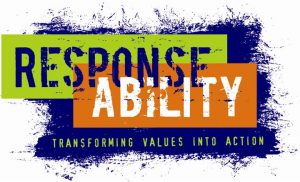
Yesterday I had an unsettling experience. I had to not accept a writing engagement with a hospice person. But I think I did so responsibly.
Writing another’s story, whether it be that of a hospice patient or anyone else, is a joint act. They tell the story(ies) and you do the writing. But really the interpersonal contract runs much deeper than those transactions. So I think great care should be taken in entering into it in the first place.
In my hospice writing, I have the hospice care giving professionals screen potential writing opportunities for me. I ask that they screen for four things:
- Stamina – does my potential writing partner have the energy to engages in hour-plus interview meetings? Maybe as many as four or five over time?
- Longevity – is their diagnosis/prognosis such that they have ideally three or four weeks left so that I can do the interviews, then the writing and present them with a draft for their approval?
- Cognitive capability – are they able to remember enough details and able to describe it in the ways that I can follow? (No matter what, I will have to unravel sequence and conflicting facts – that always happens in interviews of anybody.)
- Desire – does my potential partner actually want to do the project?
In spite of giving these criteria, sometimes people slip through the screening, so I have learned that my first meeting with a patient is not for an interview but a mutual assessment – each of us of the other. And sometimes, infrequently thankfully, that meeting results in my decision to not enter into a joint writing project.
Such a thing happened yesterday. I know that I’d already aroused expectations–perhaps in the patient, but certainly in their family and in the hospice personnel. My decision centered on that last requirement: desire.
The gentleman I met with was in his 90s, and it seemed that he would have a lot of interesting stories. He’d served in the air war in Europe, and had started and grew his own business. Both of these topics yielded rich detail from him, and so I probed to check his cognition. It was pretty good. Not perfect but pretty good. In a half hour conversation, he contradicted himself only one or two times. And as I’ve said, this is not so rare. Of course, as with most men of his generation, I knew that my biggest challenge would not be to get details, but to get him to emote about any of them at all. It seems that The Greatest Generation simply learned not to express feelings openly – either in word or in action. But that is nothing new to me. And sometimes I have success in getting beyond the barriers.
So I moved to the last criterion: desire. The most simple way I’ve found to assess the desire of a potential partner is to ask two simple questions about a written memoir: “Who do you want to talk to and what do you want to tell them?”
In yesterday’s instance, the gentleman was quick: Why, nobody. And whatever we want.
So the hospice had picked up that this fellow had been, was, telling interesting stories to the caregivers. They translated this into desire. In talking on for a bit, really, the man felt no compulsion to record his stories. One of his children was in the room and perhaps fearing an opportunity might be slipping away hastened to fill the void saying to him that his kids and grand kids would love to have a legacy in his stories written out.
Now it is possible that in the moment of my questions, the gentleman became confused and could not switch contexts from the stories of his past to what we were doing right there in the present, but I don’t think so. I think the man simply had no desire to produce a written work of his memoir.
Could he be “talked into” spending hours in interviews and review? I think so. Should he though?
The answer to that question lies mostly with the writer, I think. And each has to answer it for himself.
For me, in my work with hospice patients, I find that convincing anyone to proceed is not something I want to do. And that is because the most scarce resource any hospice patient has is time. And the last thing I want to do is to use some of it for a purpose that they themselves do not necessarily desire. One might argue that they have nothing “better” to do. But making that judgement for someone else is not something I’m willing to do.
For me, my primary responsibility in my hospice writing is to my potential writing partner–a person nearing the end of their life. That is one of the things that makes my particular kind of writing not journalism. For the same reason, neither is it biography. While the reader is important to me, they are simply not as important as my writing partner. That’s why I say I’m writing their memoir.
My motivation is just different. And so even though I do not like to, I knew I had to disappoint some people.
In writing for others you need to decide, among your partner, their families and friends, the general readership, and you, yourself, how to apportion your responsibility.

Dear Rich,
Thank you for this compassionate and articulate piece. You write so well about your reasons for every step of your process. It takes a unique person to do this work.
Mimi
Thanks, Mimi. Tips I picked up in your workshops have helped to build my skill.
And it takes a unique kind of person to do the work YOU do as well!